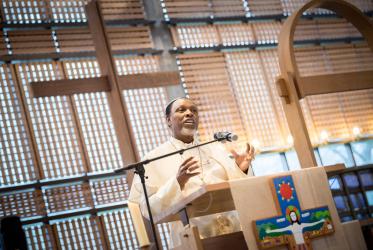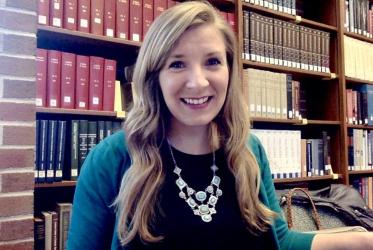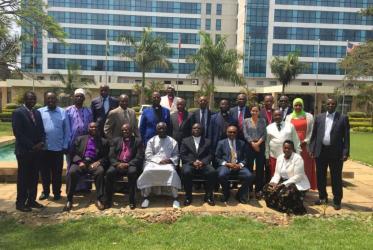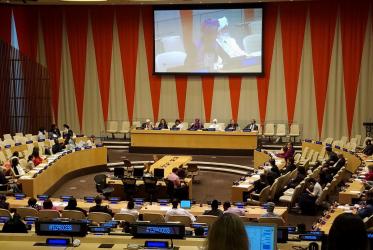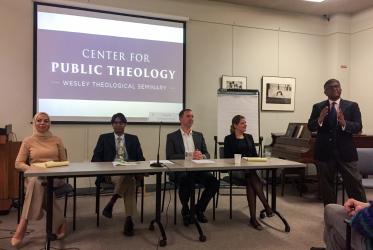Displaying 21 - 40 of 71
24 September 2018
Faces of Hope raises awareness
07 March 2018
Walking together against hatred and violence
26 February 2018
In Nigeria, WCC workshops focus on human rights
04 December 2017
African women embark on pilgrimage in Burundi
29 November 2017
G20 summit: call to pray for peace in Hamburg
07 July 2017
Nigerian Christians and Muslims open historic peace centre
20 August 2016
In Ghana, women bring open minds, honest words
05 July 2016

